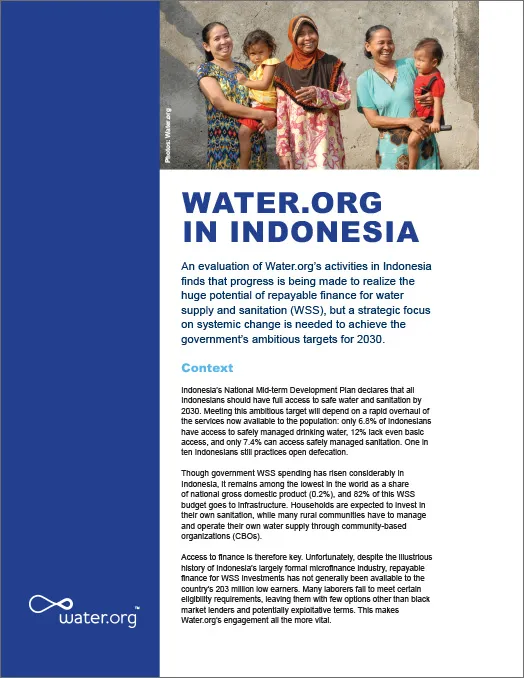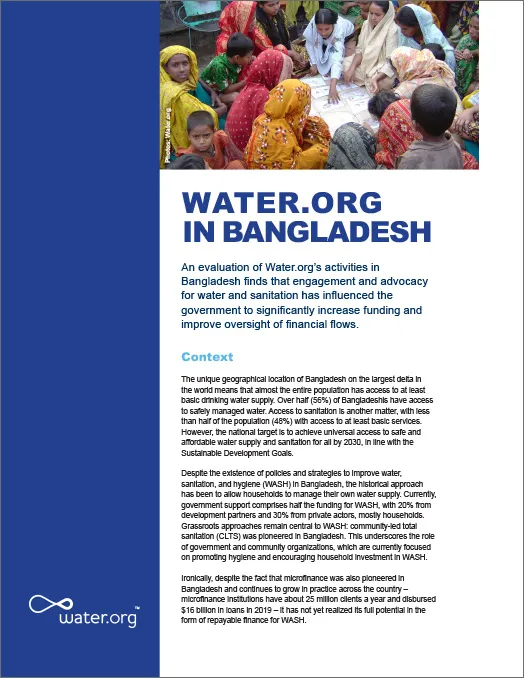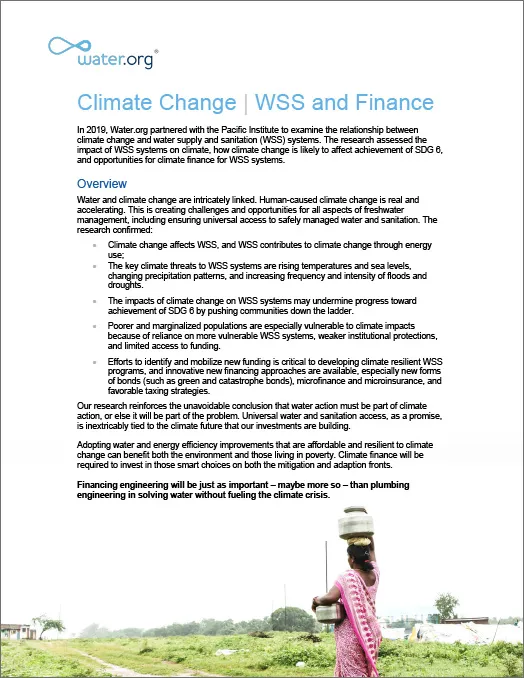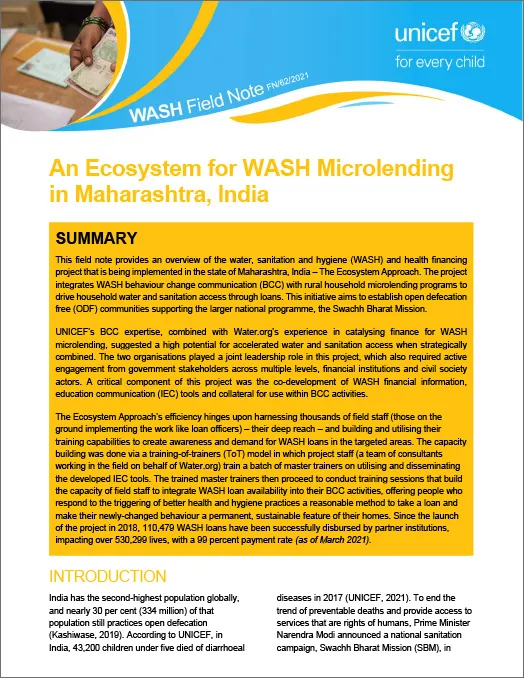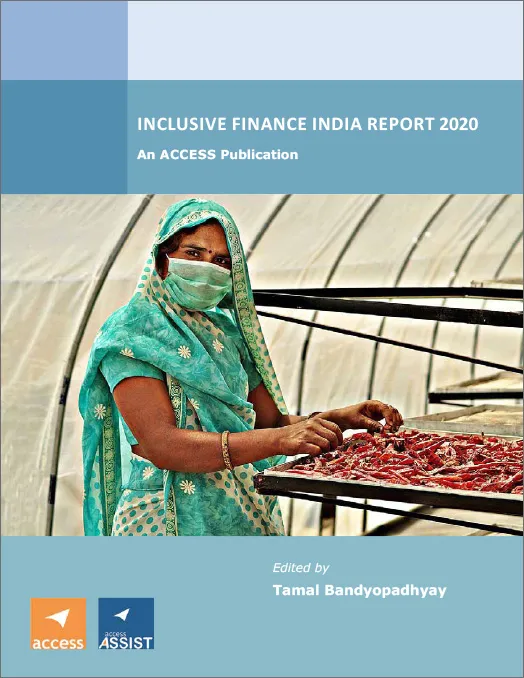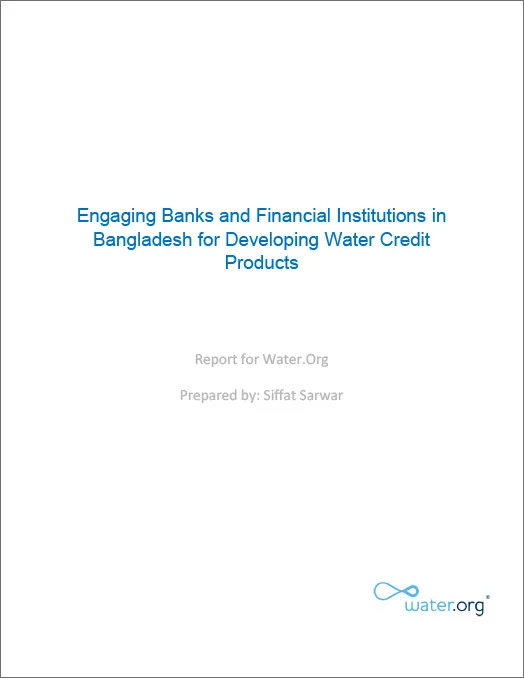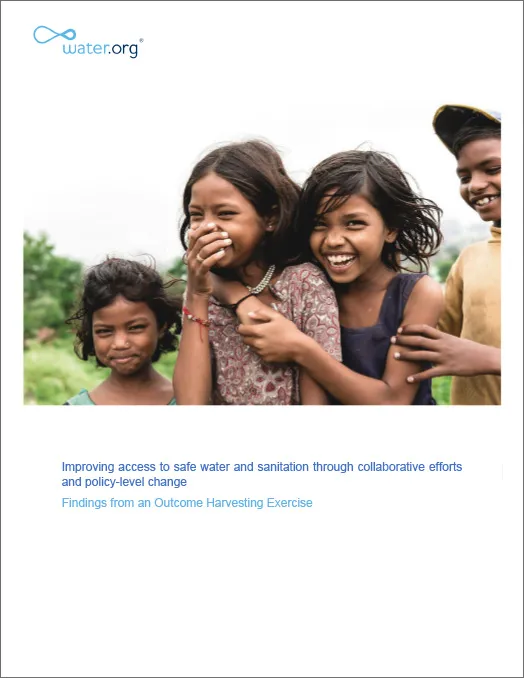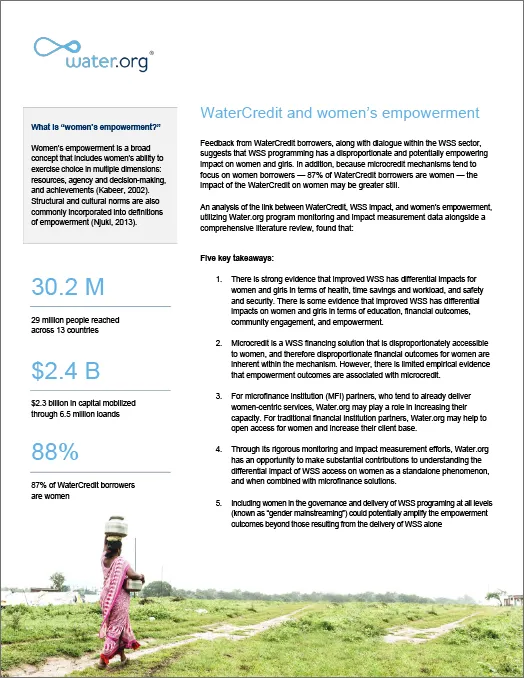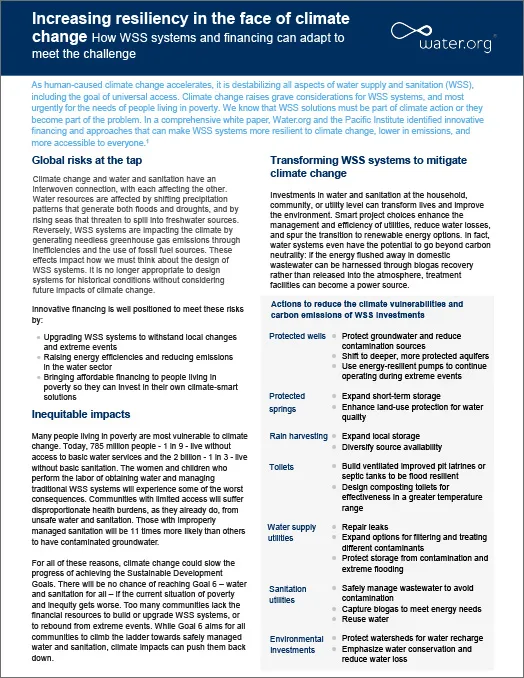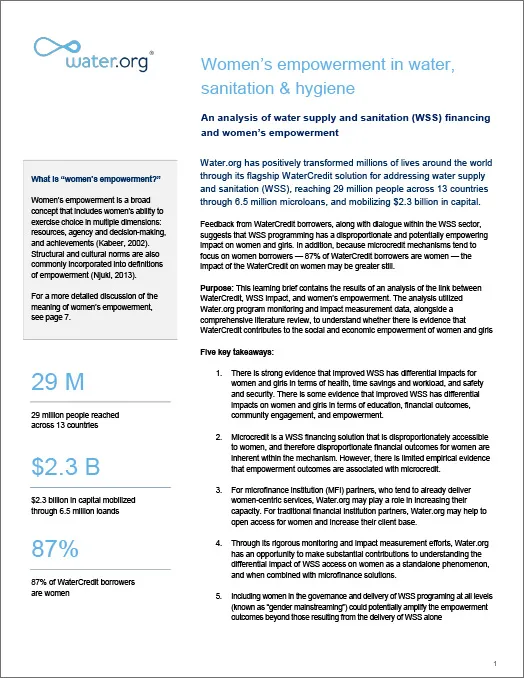Document Type: Learning brief
Countries: Indonesia
Date: Jan. 15, 2022
Water in Indonesia: Learning brief on systems change
An evaluation of Water.org’s activities in Indonesia finds that progress is being made to realize the huge potential of repayable finance for water supply and sanitation (WSS), but a strategic focus on systemic change is needed to achieve the government’s ambitious targets for 2030.
